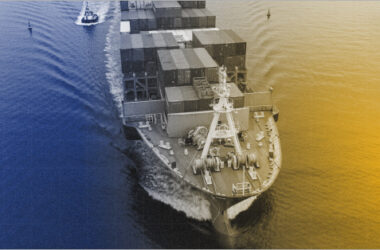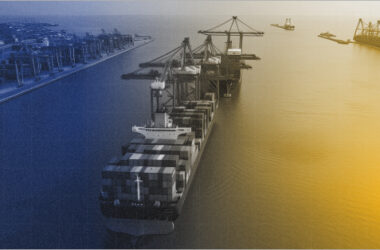Marine Insurance is the silent savior of international commerce. Whenever a ship crosses oceans with billions worth of cargo, it is Marine Insurance that is in place to protect against the unpredictability of the sea. Whether it is a ferocious storm, piracy or any unavoidable loss, Marine Insurance keeps the businesses afloat even when the tide turns rough.
Marine Insurance in India is an important component of the logistics and transporting infrastructure, including local and global trading. At the centre of any Marine Insurance Policy, however, is a contract–the legal framework that establishes the rights, duties, and liabilities between the insurer and the insured. Learning about the various forms of contracts in Marine Insurance is not only a preserve of the insurers or lawyers but also for traders, exporters, and shipowners who have to deal with the issue of maritime risks on a daily basis.
We will now take a closer look at Marine Insurance contracts in India, their types, structure, and importance based on the principles of the Marine Insurance Act, 1963. Read on!
Marine Insurance Contract: What It Is
A Marine Insurance contract is a contract that is legally binding between the insurer and the insured in which the insurer agrees to indemnify the insured against marine losses in consideration of a premium. To put it plainly, it is an assurance that in case your ship or cargo is lost or damaged during transit in any medium ( rail, road, air or sea), the insurer will compensate you as per the terms of the policy.
The Marine Insurance Act, 1963—based on the UK’s Marine Insurance Act, 1906—provides the legal framework of Marine Insurance in India. It prescribes the format, scope and functioning of such contracts and establishes the fundamentals that make them valid.
The main parties in a Marine Insurance contract are:
- The Insured (shipowner, exporter, importer, or trader) who seeks protection.
- The Insurer (insurance company) who provides financial indemnity.
- The Broker or Agent, who may facilitate the contract.
What are the Essential Features of a Valid Marine Insurance Contract?
Every Marine Insurance contract must satisfy certain legal and ethical conditions to be valid. These include:
- Insurable Interest: The insured must have a financial interest in the subject matter—meaning they stand to lose financially if the subject is damaged or lost.
- Utmost Good Faith (Uberrimae Fidei): Both parties must disclose all material facts honestly. For instance, if a ship’s hull has prior damage, the insured must inform the insurer.
- Indemnity: The contract promises to compensate the insured only to the extent of their actual loss—not for profit.
- Warranties and Conditions: Certain warranties (express or implied) must be fulfilled, such as seaworthiness of the vessel.
- Proximate Cause: The insurer is liable only for losses directly caused by insured perils—like storm, fire, or collision.
- Premium and Policy: The insured pays a premium, and in return, receives a formal policy document outlining the terms of coverage.
Broad Classification of Marine Insurance Contracts in India
Marine insurance contracts can be broadly classified based on what they cover and the duration of coverage. Some contracts focus on the voyage itself, while others cover a specific time period or multiple shipments.
The major classifications include:
- Voyage Contracts – covering a single trip.
- Time Contracts – covering a fixed period.
- Mixed or Combined Contracts – covering both voyage and time.
- Open Contracts – covering multiple shipments under one umbrella policy.
Each type serves a distinct purpose depending on the nature of the insured’s business, the frequency of shipments, and the type of risk exposure.
Different Types of Marine Insurance Contracts in India
We shall divide the main types of marine insurance contracts that are identified under Indian law and practice.
1. Voyage Policy
In a voyage policy, the insured property is covered against a particular voyage- say Mumbai to Singapore. The policy begins at the point of departure of the ship at the port of origin and terminates as soon as the ship reaches the destination.
This type of a Marine Insurance contract is the right choice in case of single shipments or single cargo movements. It is popular among exporters and importers who do not necessarily have year-long shipments.
Advantages:
- Precise coverage for a single voyage.
- Premiums are calculated for that voyage only.
Limitations:
- No insurance coverage against delays and idle time between voyages..
- A new insurance policy is required for every trip.
2. Time Policy
A time policy covers the subject matter over a period of time-usually 6 months or 12 months- regardless of the number of voyages that the ship makes. This type of a Marine Insurance contract is prevalent among shipowners and charterers since it insures ships that are continuously used in trade.
To illustrate, a shipping company that trades in India, the Middle East and Africa, may buy a one year time policy that will cover all its possible voyages and port risks during that period.
Benefits:
- Provides uninterrupted coverage over multiple voyages.
- Ease of administration-no repetitive documentation.
Drawbacks:
- Premiums tend to be more expensive as it covers a long duration.
3. Mixed Policy (Voyage and Time Policy)
A mixed policy is a combination of the voyage and time policy. It is used to cover a certain trip over a limited period of time.
For instance, if a vessel is insured for a voyage from Chennai to Dubai within 30 days, the coverage will apply only to that trip and duration.
When to use:
- Where chartered ships are required to sail on strict timetables.
- When the length of voyage and the frequency of trade are both significant.
4. Open (Floating) Policy
A floating policy or open policy is tailored to regular traders or exporters who have frequent shipments. Rather than acquiring a new policy in each consignment, an open Marine Insurance Policy is used to cover all the shipments within a certain time frame.
The insured declares the value and description of each shipment to the insurer periodically. Based on these, premium adjustments are made.
Ideal for:
Exporters, importers, and large logistics companies involved in continuous trade.
Advantages:
- Saves time and paperwork.
- Offers continuous insurance coverage of all shipments.
5. Valued and Unvalued Policies
A valued policy outlines the value of subject matter that is agreed to in the contract. This pre-determined amount is paid to the insured in case of a loss, irrespective of the market changes.
An unvalued policy, on the other hand, means that the value is left to be determined when the loss occurs, with reference to the market value of goods or vessel.
Example:
If a cargo worth ₹50 lakh is insured under a valued Marine Insurance Policy for ₹60 lakh, the insurer pays ₹60 lakh in the event of a total loss.
Please note: Valued policies offer certainty The unvalued ones have flexibility but may result in disputes.
6. Named and Floating Policies
A named policy specifies the names of ships, voyages, or goods insured. Every detail is fixed at the inception of the contract.
A floating policy (not to be confused with open policy) provides general coverage where details like shipment dates or cargo specifics may be declared later.
Suitability:
- Named policy for specific, identifiable shipments.
- Floating policy for unpredictable or varied shipments.
7. Block Policy
A block policy extends beyond marine transit. It covers goods from the warehouse of the consignor to the warehouse of the consignee, including land and inland waterway transport.
For instance, a manufacturer shipping goods from Delhi to London via Mumbai port can cover the entire route—road and sea—under a single block policy.
Advantages:
- Comprehensive door-to-door protection.
- Ideal for multimodal transport.
8. Port Risk and Freight Policies
Port Risk Policy: Covers a ship while it’s docked at a port. Risks like fire, collision, or explosion at the port are included.
Freight Policy: Protects the shipowner’s right to receive freight charges if the cargo is lost or delayed due to insured perils.
Why they matter:
They provide niche protection for specific commercial exposures within marine trade.
Legal Framework Governing Marine Insurance Contracts in India
The Marine Insurance Act, 1963 is the cornerstone legislation that governs marine insurance contracts in India. It lays down the structure, rules, and duties for insurers and insureds.
Other key legal frameworks include:
- The Indian Contract Act, 1872: Governs general principles of contract formation.
- The Carriage of Goods by Sea Act, 1925: Defines carrier liabilities.
- IRDAI Regulations: Oversee insurance company operations and policy issuance standards.
Indian courts have also played a pivotal role in interpreting marine insurance clauses, particularly in disputes over disclosure, seaworthiness, and proximate cause.
Choosing the Right Type of Marine Insurance Contract
Selecting the right marine insurance contract depends on several factors:
- Nature of Goods: Fragile, perishable, or high-value goods need specialized coverage.
- Voyage Frequency: Regular exporters may benefit from open policies.
- Trade Routes: High-risk routes (like piracy-prone areas) may require extended clauses.
- Duration of Shipment: Short-term vs. long-term operations determine the need for voyage or time policies.
Consulting an experienced broker or insurer ensures alignment between coverage and actual risk exposure.
Common Pitfalls in Marine Insurance Contracts
Many businesses face disputes or claim rejections due to simple yet costly mistakes. Some of the common pitfalls include:
- Non-disclosure of material facts such as prior losses or cargo condition.
- Breach of warranty, like using an unseaworthy vessel.
- Incorrect valuation leading to underinsurance or overinsurance.
- Ignoring exclusions or misinterpreting the scope of cover.
To prevent risks of this kind, it is important to check the contracts thoroughly, keep the communication with the insurer transparent, and check the accuracy of documentation.
Final Thoughts:
Mariner Insurance contracts are not just documents, but are the life-rafts of maritime commerce. Whether you are an exporter who is transporting electronics out of Chennai or the ship owner who is traveling between Indian and foreign ports: the kind of Marine Insurance contract you choose can determine how much you can recover in case of unexpected losses.
Understanding the nuances of the voyage, time, open, and block policies can assist businesses in making a well-informed choice and preserving their economic welfare. Do remember, in an uncertain sea of trade, the correct Marine Insurance Policy can be the lifeboat which holds your business together when the current of uncertainty increases.







